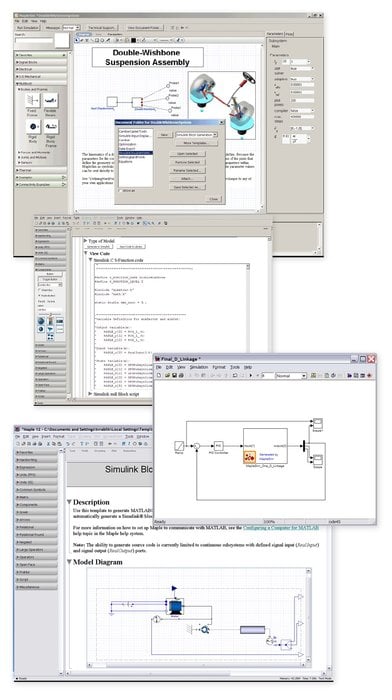www.industrymiddleeast.com
03
'09
Written on Modified on
MapleSim Connectivity Toolbox to help enhance and extend Simulink models
Close on the heels of the release of MapleSim™, Maplesoft™ announced the availability of the MapleSim Connectivity Toolbox. This new product enables users to export high-performance MapleSim models into Simulink®, thus taking advantage of the intuitive, multi-domain physical modeling environment of MapleSim as part of their toolchain.

Using this toolbox, high-performance, high-fidelity MapleSim models are automatically converted to S-Function blocks for seamless inclusion in Simulink diagrams. Models created this way are highly efficient due to MapleSim’s symbolic preprocessing and optimized code generation. For many systems, using MapleSim to create the original model is the only way to create a simulation that is fast enough for use in real-time applications. In addition, this toolbox allows engineers to better understand and more easily reuse their models with the help of MapleSim’s analysis tools and design documentation abilities.
“The MapleSim Connectivity Toolbox allows engineers to construct their models in shorter time and with less effort,” said Laurent Bernardin, Chief Scientist and Vice President of Research and Development, Maplesoft. “Users can build the complex portions of their models more easily using MapleSim and get better results. Not only does that provide significant time savings, but it also enables engineers to enhance and extend their Simulink models in ways that would be extremely difficult, and sometimes impossible, without MapleSim.”
“The MapleSim Connectivity Toolbox allows engineers to construct their models in shorter time and with less effort,” said Laurent Bernardin, Chief Scientist and Vice President of Research and Development, Maplesoft. “Users can build the complex portions of their models more easily using MapleSim and get better results. Not only does that provide significant time savings, but it also enables engineers to enhance and extend their Simulink models in ways that would be extremely difficult, and sometimes impossible, without MapleSim.”

